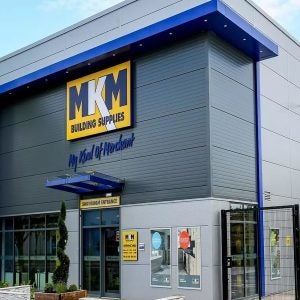On his retirement from Finnforest, John Tong has predicted that the timber industry will have to cope with an accelerating pace of change into the future, having already experienced a “revolution” in the last decade,
Mr Tong, 58, stood down at the end of 2009 after 39 years in the industry, latterly as senior vice-president of Finnforest’s European upgrading and distribution operations. He was managing director of Finnforest UK until 2006.
“Ten years ago the top 10 companies in the UK timber merchanting trade represented 20% of the business,” he said. “Today the top four have 80%.”
He said the supply chain coverage of the giants like Jewsons and Travis Perkins meant they could supply builder customers wanting deliveries at specific times and specific plots.
“We need to start thinking less in timber trading terms and more as a distribution business,” said Mr Tong. “The industry has to think of getting the product from the forest to the customer in the most efficient way it can.”
He highlighted Wickes’ acquisition of Hunter Timber in the late 1980s as a key moment in the evolution of the trade, with its new owner transforming the timber company’s need for logistics and information systems.
“It used to take us 10-14 days to know what the profitability had been for the previous month,” recalled Mr Tong. “Wickes could not believe that we could run a business like that. It revolutionised the way we looked at [this] and gave us a sound basis for the future.”
He pinpointed Finnforest becoming the first UK timber distributor to work with the SAP business software system as another important development, allowing the company to build the systems and controls it has today.
Mr Tong said the timber industry had thus far failed to capitalise on the inherent environmental credentials of wood.
“I’d like to see more from our government to encourage greater use of timber from renewable sources to help replace high energy consuming products,” he said, adding that in this area he did now expect to see timber windows take further market share from PVCu..
More finger-jointing and lamination, he said, provided a partial answer to industry supply pressures. “It costs a bit more but we have to develop systems to help take that cost out.”
He also said that companies must focus on what they’re good at and “where there’s a need” .
“[Developing] a clear understanding of your potential market place is critical,” he said. “Successful companies like James Latham and Timbmet have done this. A good specialist always outperforms a good generalist.”
Mr Tong, who served as president of The Timber Trade Federation and whose earlier employers included MLM , Mallinson-Denny and Hunter Timber, said he was also pleased timber agencies had evolved and not died, as some had predicted they would.
“We all need to focus on our strengths and clearly understand our route to market and agency companies like UCM have successfully adapted their business to fit the current market needs.”






